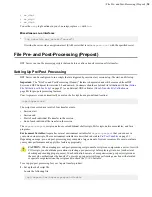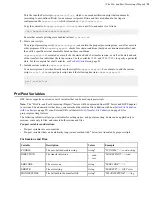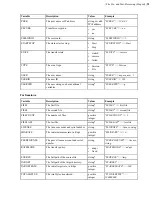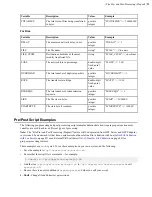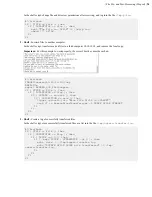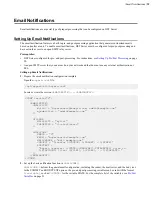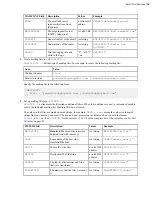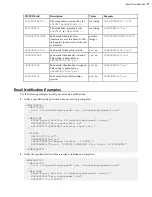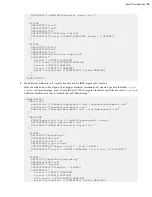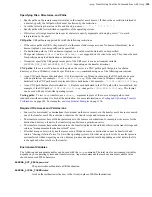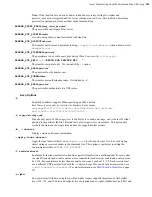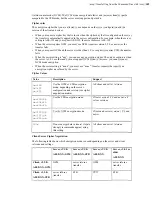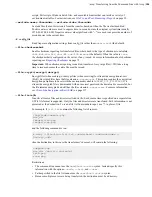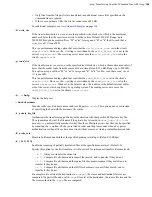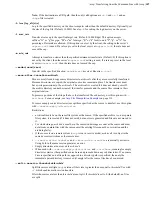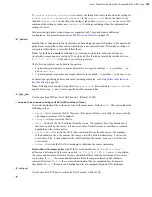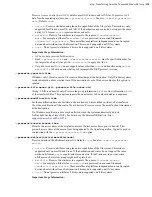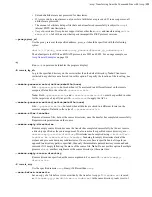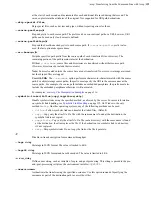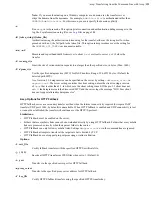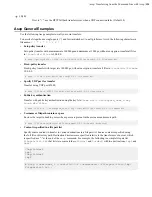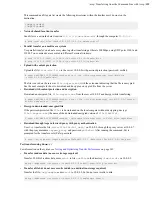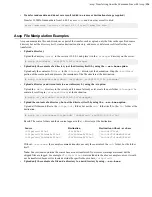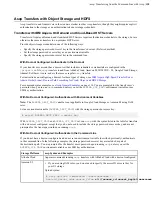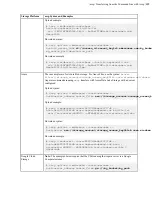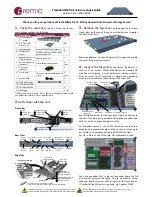
| ascp: Transferring from the Command Line with Ascp |
104
scripts, Perl scripts, Windows batch files, and executable binaries that can invoke a variety of
environment variables. For instructions, see
File Pre- and Post-Processing (Prepost)
on page 90.
--exclude-newer-than=
mtime
,
--exclude-older-than=
mtime
Exclude files (but not directories) from the transfer, based on when the file was last modified.
Positive
mtime
values are used to express time, in seconds, since the original system time (usually
1970-01-01 00:00:00). Negative
mtime
values (prefixed with "
-
") are used to express the number of
seconds prior to the current time.
-f
config_file
Read Aspera configuration settings from
config_file
rather than
aspera.conf
(the default).
--file-checksum=
hash
Enable checksum reporting for transferred files, where
hash
is the type of checksum to calculate:
sha1
,
md5
,
sha-512
,
sha-384
,
sha-256
, or
none
(the default). When the value is
none
,
the checksum that is configured on the server, if any, is used. For more information about checksum
on page 75 .
Important:
When checksum reporting is enabled, transfers of very large files (>TB) take a long
time to resume because the entire file must be reread.
--file-crypt={encrypt|decrypt}
Encrypt files (when sending) or decrypt files (when receiving) for client-side encryption-at-rest
(EAR). Encrypted files have the file extension
.aspera-env
. This option requires the encryption/
decryption passphrase to be set with the environment variable
ASPERA_SCP_FILEPASS
. If a
client-side encrypted file is downloaded with an incorrect password, the download is successful, but
the file remains encrypted and still has the file extension
.aspera-env
. For more information,
see
Client-Side Encryption-at-Rest (EAR)
on page 137.
--file-list=
file
Transfer all source files and directories listed in
file
. Each source item is specified on a separate line.
UTF-8 file format is supported. Only the files and directories are transferred. Path information is not
preserved at the destination. To read a file list from standard input, use "-" in place of
file
.
For example, if
list.txt
contains the following list of sources:
/tmp/code/compute.php
doc_dir
images/iris.png
images/rose.png
and the following command is run:
# ascp --file-list=list.txt --mode=send --user=
username
--
host=
ip_addr
.
then the destination, in this case the transfer user's docroot, will contain the following:
compute.php
doc_dir
(and its contents)
iris.png
rose.png
Restrictions:
• The command line cannot use the
user@host:source
syntax. Instead, specify this
information with the options
--mode
,
--host
, and
--user
.
• Paths specified in the file list cannot use the
user@host:source
syntax.
• Because multiple sources are being transferred, the destination must be a directory.

